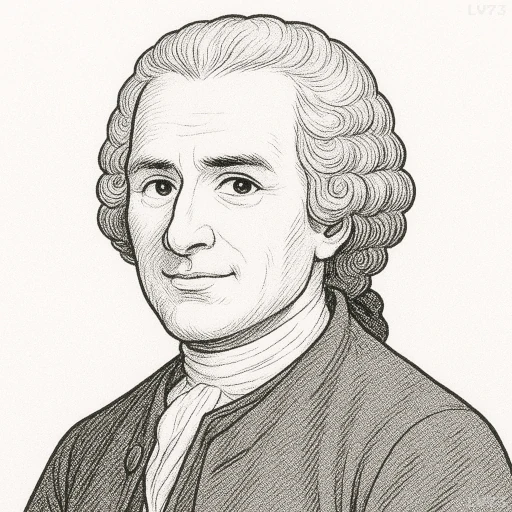“We pity in others only the those evils which we ourselves have experienced.”

- June 28, 1712 – July 2, 1778
- Born in Geneva
- Philosopher, political philosopher, writer, composer
table of contents
Quote
“We pity in others only the those evils which we ourselves have experienced.”
Explanation
In this quote, Jean-Jacques Rousseau explores the nature of empathy and pity. He suggests that our ability to feel compassion for the suffering of others is largely shaped by our own experiences. We tend to feel pity for those who endure misfortunes or hardships that we are familiar with because their suffering resonates more deeply with us. It is easier for us to empathize with others’ pain if we have lived through similar circumstances, as we can draw on our own emotions and understanding of that experience. Rousseau points out that we are more attuned to the suffering that mirrors our own, and that our personal struggles make us more capable of recognizing and feeling for similar struggles in others.
Historically, this view connects to Rousseau’s broader ideas on human nature and the limitations of social understanding. He often criticized society for fostering self-interest and indifference to the suffering of others, particularly when that suffering is foreign or unfamiliar to us. For Rousseau, true empathy required a broader, more inclusive understanding of human suffering, one that extended beyond our own direct experiences. His insight suggests that the way we respond to others’ pain is shaped by the boundaries of our own personal experience, which can often limit our ability to empathize with situations we haven’t directly faced.
In modern times, this quote is particularly relevant in discussions about social justice, global empathy, and the expansion of understanding across diverse cultures and experiences. Our natural tendency may be to empathize with the suffering of people whose experiences are similar to ours, but to struggle with extending that empathy to those in distant or unfamiliar situations. Rousseau’s point challenges us to think more deeply about how we can cultivate universal empathy, one that transcends personal experience and reaches out to those whose pain is different from our own. It calls for a more inclusive approach to compassion, urging us to recognize that all suffering, whether familiar or foreign, deserves our attention and care.
Would you like to share your impressions or related stories about this quote in the comments section?


